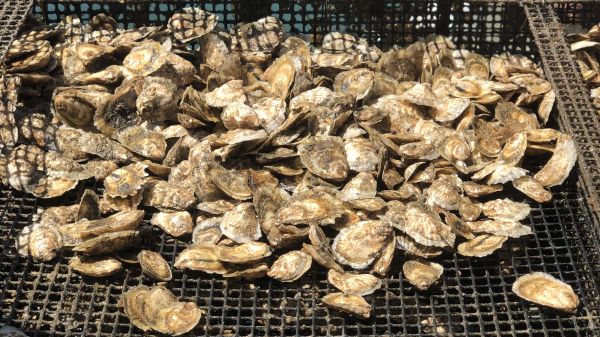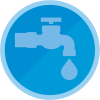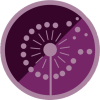NEW! eeBLUE Aquaculture Literacy Mini-Grants (Apply by April 2)

Written by Brianna Shaughnessy | Education Strategic Planning Specialist and NOAA Aquaculture Education Coordinator
More than 50% of seafood produced globally for human consumption comes from aquaculture, and that percentage is rising. Yet, there are still many misperceptions about aquaculture’s potential environmental impacts, quality, and safety, and there is high variability in community-specific needs to reach sustainable practices. Evidence shows that public support for aquaculture is associated with collective knowledge about its benefits and risks, trust in scientific research, and perceived credibility of the sources providing them with information. In the United States, public audiences’ limited understanding of base-level information about aquaculture and related environmental topics influences how communities understand, support, and make decisions about seafood. Connecting at the local-level and empowering industry voice is crucial in sharing the compelling stories of each aquaculture community and their unique needs.
"Educating the public about the benefits of seafood, dispelling rumors about old aquaculture practices and informing stakeholders of the ecosystem benefits of ocean farming is just part of our responsibilities as growers in the marine environment," said Dan Ward, owner of Ward Aquafarms in Massachusetts.
The term ‘aquaculture’ encompasses a diversity of marine and aquatic farming industries, cultural practices, and environmental topics. Overall, aquaculture operations provide a year-round source of high-quality jobs and economic opportunities in coastal communities that can augment seasonal tourism and commercial fishing. Consumer and community understanding of aquaculture topics is key to achieving the full economic, social, and environmental potential of sustainable seafood farming. That is why, since 2017, experts from across NOAA worked closely with the Coastal Ecosystem Learning Centers (CELC) Network, a consortium of 25 aquariums and marine science education centers across North America, on an initiative aimed at improving public aquaculture literacy.
“Millions of people visit CELC institutions every year. By working closely with these aquariums, NOAA can provide them with the latest credible information on the benefits of sustainable aquaculture, while also learning about community needs and perceptions from these place-based organizations,” said Maggie Allen, who coordinates the CELC network for NOAA’s Office of Education, “Tapping into the reach of our CELC partners allows us to engage communities across the country on these important issues.”
Aquaculture literacy within a community is generated by a familiarity with base-level information about aquaculture and, in turn, encourages consumers to confidently take ownership of their aquaculture-related decisions. Success begins at the level of community engagement and requires thoughtful implementation of best practices in environmental education. This is where NOAA’s eeBLUE partnership with the North American Association of Environmental Education (NAAEE) comes in, a 5-year partnership in place to increase environmental and science literacy among NOAA’s partners and external networks.
Now, aquariums, seafood farmers, and others working on innovative public aquaculture education experiences can apply for support through the new eeBLUE Aquaculture Literacy Mini-Grants Program. Applicants may apply for up to $15,000 to spend within a one-year project that builds a partnership across each sector.
“For these first of their kind mini-grant partnerships, we’re looking for innovative ideas that will engage communities on aquaculture topics, correct common misconceptions about marine seafood farming, and raise awareness of the importance of sustainable aquaculture for our economy and national food security,” said Brianna Shaughnessy, NOAA Aquaculture Education Coordinator.
Successful proposals will leverage NOAA and NAAEE resources to:
- Bring aquaculture education programming to institutions and/or target audiences currently lacking resources;
- Build the capacity of environmental education providers to offer high-quality programming in informal and formal settings by matching aquaculture communication needs with existing research; and
- Develop creative approaches for public engagement that promote a culture that values innovation, exploration, and community-relevant learning as a context for improving public aquaculture literacy.
These mini-grants are one part of an ongoing effort by NOAA’s Community of Practice for Aquaculture Literacy (CoPAL). CoPAL’s goal is to enhance support for sustainable aquaculture by increasing understanding of environmental and marine science topics among educators, professional networks, and groups involved in community outreach. In addition to forging lasting partnerships, the collective knowledge, skills, and products created through funded mini-grant activities will be integrated into CoPAL’s best practices for aquaculture communications and outreach. As Chris Schillaci, Regional Aquaculture Coordinator for the NOAA Greater Atlantic Regional Fisheries Office, points out: "Collaborative efforts like eeBLUE are critical for NOAA Fisheries to provide effective stakeholder engagement, education, and outreach, and to engage our stakeholders on important policy issues. Disseminating complex scientific information in a manner that empowers stakeholders to participate in the decision-making process helps us all make more informed choices."
“Aquaculture has been practiced for millennia and we’re still finding ways to innovate around our food systems today. This opportunity will help kickstart innovations in science communication that can spur future aquaculture trailblazers!” said Tori Spence, Regional Aquaculture Coordinator, Pacific Islands Regional Fisheries Office.
Applications are due on April 2, 2021 at 11:59 PM ET. Learn how to apply here.
A recorded informational webinar will be held on March 5, 2021 at 2:00 PM ET. Register here.


